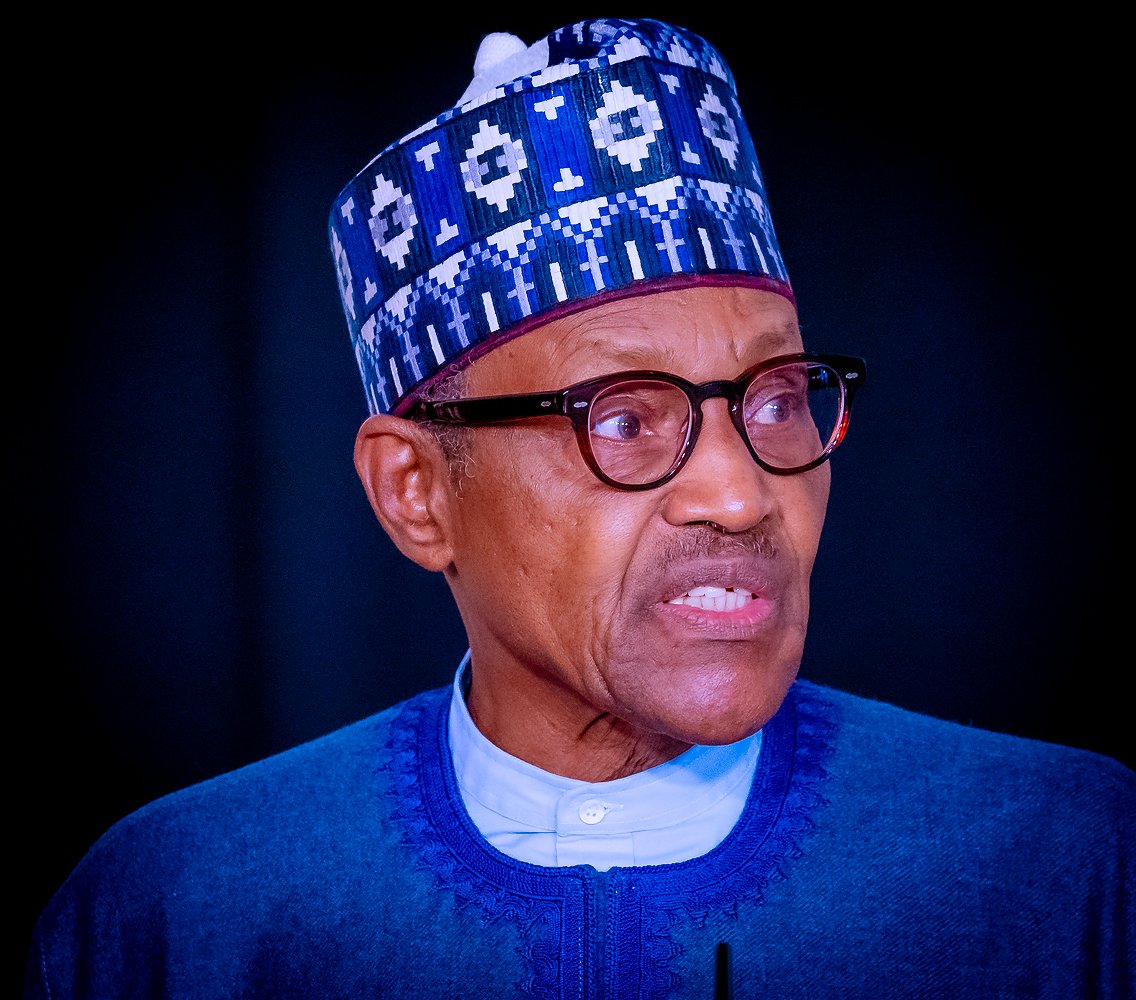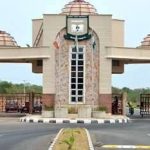On May 29, 2015, Major General Muhammadu (ret.) took the oath of office in front of thousands of Nigerians assembled in Eagles Square in Abuja and millions more watching on television.
“Mai gaskiya!” (translated as “Man of truth”) Sai Baba, Sai Buhari, were the cheers of the crowd. Nigerians’ outpouring of celebration and fanfare throughout the country demonstrated their confidence and trust in the tall, slender former head of state from Daura, Northwest Nigeria, who is 72 years old.
Buhari was leaving behind a failing economy, a very divisive state, and the war to free large areas of ungoverned territory from Boko Haram’s control after three unsuccessful attempts to run for president. Lands were not just taken by the terrorists. Many of the 276 schoolgirls who had been kidnapped from Chibok a few years prior were still being held captive. Buhari pledged to free them.
He was an unflappable leader ready to root out pervasive corruption, put an end to the Boko Haram insurgency, reestablish security, and revitalize Africa’s greatest economy on the day of his inauguration.
These demands weren’t arbitrary or imposed on him. They were simply a result of his promises, which he stated were made in response to the residents’ complaints over 16 years of poor leadership by the People’s Democratic Party. He promised them opportunity, reform, and optimism.
Buhari made a promise to “govern Nigeria honestly under the constitution, strive to secure the country and efficiently manage the economy, attack poverty through shared economic growth, attack corruption through the impartial application of law, tolerate no religious, regional, economic, or gender bias in government, return Nigeria into a position of internment” after becoming the APC’s presidential candidate on that Thursday night, December 11, 2014.
He traveled the nation in the ensuing weeks, presenting this plan to Nigerians in various ways, and eventually won enough support to oust the incumbent, Goodluck Jonathan, in the February 2015 presidential elections.
Buhari has the authority to improve Nigeria if he had the will to do so. Though did he?
The first warning indicators appeared when the new administration failed to call a working cabinet 100 days after taking office. The months-long delay earned Buhari the nickname “Baba go slow.” This sluggish start would portend a lot more problems.
Nigeria’s GDP shrank 1.5% and entered a recession in the second quarter of 2016 for the first time in 25 years. According to the National Bureau of Statistics, the steep decline was caused by both a lack of hard money and falling oil earnings.
“This contraction reflects a difficult year for Nigeria, which included weaker inflation-induced consumption demand, an increase in pipeline vandalism, significantly reduced foreign reserves and a concomitantly weaker currency,” the NBS said in a report.
The mainstay of Nigeria’s economy, oil production, plummeted to 1.833 million barrels per day in the preceding months from 2.13 million bpd in 2015 as militant attacks in the oil-rich Niger Delta increased sharply.
The country entered its second recession in just five years in 2020, despite the government’s resilience.
The World Bank announced in November 2022 that since Buhari’s election as president in 2015, Nigeria’s development had not advanced.
“Nigeria’s development progress has stalled since 2015,” it stated. With an average annual growth rate of 7% and a ranking in the top 15 fastest-growing economies worldwide between 2001 and 2014, Nigeria was a rising star in West Africa’s economic development.
“The rising tide stopped since 2015 due to: (i) a decline in oil prices; (ii) increased insecurity; (iii) a reversal of macroeconomic reforms and heightened unpredictability of economic policies; and—more recently—(iv) the adverse effects of the COVID-19 pandemic.
“As a result, growth reduced to a 1.1 per cent average between 2015 and 2021. The subdued economic growth, coupled with a rapid increase in population at 2.6 percent per year, one of the highest of the region, widened the gap in real GDP per capita between Nigeria and its peers.”
In defending itself, the regime claims to have made “strides in infrastructural development; roads, bridges, rail, air and seaports, housing, and many others.”
But the foundation of these infrastructure development initiatives is a lot of debt. The construction or repair of the roads was funded by more than N600 billion in Sukuk bonds issued since 2017 for more than 40 road projects spread across all six geopolitical zones, as opposed to the railroads, which were mostly funded by Chinese loans to Nigeria.
It mentioned the 156 km Lagos-Ibadan standard gauge rail line that was finished and opened in a record-breaking four years in Nigeria (2017 to 2021), the 8.72 km extension of the Lagos-Ibadan rail line to the Lagos Port Complex that was finished in 2021, the 186 km Abuja-Kaduna standard gauge rail line that was finished and opened in 2016, and the 327 km Itakpe-Warri standard gauge rail that was finished and opened in 2020.
It also mentioned the Abuja-Kaduna-Zaria-Kano Expressway (first phase scheduled for completion in 2023) as well as the Lagos-Ibadan Expressway, Second Niger Bridge, and Lagos-Ibadan Expressway (first phase scheduled for completion in 2022).
These initiatives, though, have relied heavily on borrowing. Every Nigerian would owe more than N384,000 by the end of the Buhari administration as the country’s debt profile increases from N12.12 trillion in June 2015 to N77 trillion in June 2023.
Buhari’s pledge to pull millions of Nigerians out of poverty was a failure due to rising prices.
Nigeria’s inflation rate increased to a new 17-year high of 22.04 percent, according to the Consumer Price Index report released by the NBS in March 2023. The World Bank reported that in 2022, Nigeria will have one of the highest inflation rates in the world and the ninth highest in sub-Saharan Africa, which will worsen household wellbeing.
The National Poverty Reduction with Growth Strategy steering committee reported in mid-April that its different programmes had an effect on nearly two million vulnerable Nigerians. This represents 2% of the 100 million Nigerians that the President sought to emancipate from poverty.
Between 2015 and August 2022, Nigeria’s available power generation capacity fell by 981.8 megawatts. According to a Power Generation Trend, the capacity of available power generation decreased from 6,616.28 MW in 2015 to 5,634.47 MW in August 2022. This was despite the Federal Government’s 2015 intervention in the sector, which cost over N1.51 trillion.
As a result, millions of Nigerians were left in the dark throughout Buhari’s administration as the national grid failed at least 98 times. Groups are now pleading with Buhari to just return the electricity sector to its 2015 status because they no longer believe he will fulfill his campaign pledge to restore the power supply to Africa’s largest market.
On the campaign path, the president pledged to address the nation’s security issues, including terrorism, banditry, and herder attacks.
But armed groups still terrorize other states, including Zamfara, Kaduna, Katsina, and Niger. A case in point is the recent kidnapping of at least 10 students in Kachia Local Government Area, Kaduna State. In addition to kidnappings, purported herder attacks and indiscriminate farmer killings continue to ridicule Nigeria’s 2015 pledge of safety and security.
Five years have passed since the Nigeria Air eagle was unveiled to the public in July 2018 until it finally flew. But despite numerous promises, the Buhari-led administration has slowed down the smooth launch of the eagerly awaited national carrier.
Buhari has reaffirmed his “achievements” in a number of domestic and international forums, insisting that Nigerians will view his administration favorably even after he leaves office. But would they, given the mixture of broken promises and incidents of disrespect for the law?
The Nigerian Bar Association’s Section of Public Interest and Development is led by Dr. Monday Ubani. He contends that all of the election promises made to Nigerians in 2015 and 2019 by the Buhari-led administration were broken.
He declared, “There is no one metric where we can conclude he advanced the nation. Instead, he has advanced us backward by several years. Apart from the Abacha era, the administration is one of the worst abusers of the rule of law when it comes to human rights.
It’s not all zeros for Buhari, according to Sheriffdeen Tella, an economics lecturer at Olabisi Onabanjo University in Ago-Iwoye, Ogun State.
Although the dictatorship modernized a portion of the railroad industry, according to him, it did a bad job overall managing the economy.
“When it comes to economic issues, we cannot score the President any average of good. He has not done well. But he has done well in the area of rail and transport infrastructure.
“However, in the general management of the economy, he has not done well. The rate of unemployment is still very high. We are still not far from being the poverty capital of the world, except that we traded places with India. We have entered into a debt trap. And we are still looking for more loans while we use 80 per cent of our revenue to service debts. It’s not good enough.”
Garba Shehu, the Senior Special Assistant to the President on Media and Publicity, referred our correspondent to the eight-year evaluation of the Buhari administration when asked for remarks.
The Presidency made the case that Buhari established the National Social Investment Program, which includes more than 46 million people from more than 11 million low-income and vulnerable households. Out of these, it claimed that two million vulnerable and impoverished Nigerian households currently receive a N10,000 biweekly stipend through the Conditional Cash Transfer program.
It claimed that as part of its reforms, the regime also put in place the Treasury Single Account and gave priority to the implementation of the Bank Verification Number and the Integrated Personnel Payroll Information System to combat corruption in the civil sector.






